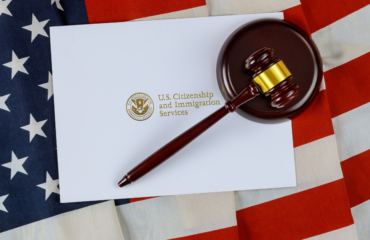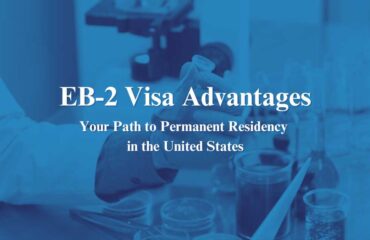
Table of Contents
- What is the Minimum Investment Required for the E2 Investor Visa?
- Overview of E-2 Investor Visa Requirements
- Is Your Business Prepared to Invest?
- What’s the Minimum Investment Required for an E-2 Visa Approval?
- Conclusion
What is the Minimum Investment Required for the E2 Investor Visa?
The E-2 visa is a popular option for foreign entrepreneurs seeking to invest and manage a business in the United States. However, one of the most frequently asked questions I get asked as a Houston immigration attorney is, “How much is the minimum investment required to qualify for the E-2 visa?” Likewise, the common response I hear from other attorneys answering that question is that the minimum investment should be at least $100,000. As an immigration attorney experienced in E-2 treaty investor visas, I have absolutely no idea where that amount came from, as the answer to that common question is more complex.
Despite common misconceptions and the incredibly vague legal guidelines, determining what exactly the minimum investment amount needed to ensure a successful E2 petition is crucial for aspiring foreign investor visa applicants. This guide is meant to dive into the complexities of the E-2 visa minimum investment requirement and provide practical insights from a business perspective from an experience immigration attorney. For a more detailed overview on the E-2 treaty investor visa, click here.
Overview of E-2 Investor Visa Requirements
Before we explore the minimum investment specifics, let’s grasp the broader E-2 investor visa requirements. Applicants must be citizens from countries that have a commerce and navigation treaty with the U.S. Click here for a full list of E-2 visa treaty countries. Additionally, investor visa applicants must demonstrate their intent to invest a substantial capital amount into a bona fide U.S. enterprise and play an active role in its management or operation.
In addition to citizenship from treaty countries and substantial capital investment, the E-2 visa also requires the minimum investment to be at-risk in a commercial sense, meaning that it cannot be “merely passive or speculative”. Applicants must demonstrate that the funds have been irrevocably committed to the U.S. enterprise and are subject to potential gain or loss based on the business’s performance.
Lastly, E-2 visa holders are typically granted a maximum initial stay of two years, which can be extended indefinitely in increments of up to two years each time. However, it’s essential to note that the E-2 visa does not lead to permanent residency in the U.S. (green card). Nonetheless, visa holders can renew their status indefinitely, provided they continue to meet the requirements and the enterprise remains operational and viable. Therefore, the E-2 visa offers a flexible pathway for foreign entrepreneurs to establish and grow their businesses in the United States.
Is Your Business Prepared to Invest?
Investing in a business is a significant decision that requires careful planning. Before starting the E-2 visa application process, applicants should assess their business’s readiness to make at least the minimum investment. Assessing your business’s readiness to invest involves evaluating various factors, including market demand, competition, regulation requirements, and financial feasibility.
Financial projections play a crucial role in determining your business’s investment readiness. Develop comprehensive financial forecasts, including revenue projections, expense estimates, and cash flow analysis, to assess your business’s financial viability. Factors that MUST be considered are startup costs, operating expenses, and potential revenue streams to determine the amount of capital required to not only launch the business, but also sustain that business.

What’s the Minimum Investment Required for an E-2 Visa Approval?
Contrary to popular belief, there’s no fixed minimum investment amount specified in E-2 visa statutes. Instead, the U.S. Citizenship and Immigration Services (USCIS) evaluates investment “substantiality” based on various factors. While some cite arbitrary figures like $100,000, the actual minimum investment can vary significantly depending on the business’s nature and industry.
The lack of a fixed minimum investment amount for E-2 visa approval demonstrates the program’s flexibility and adaptability to diverse business models and industries. Rather than imposing arbitrary minimum investment thresholds, the E-2 investor visa program evaluates the “substantiality” of the investment based on various factors. Essentially, the adjudicating officer assesses the total cost of purchasing or establishing the business, the proportion of the applicant’s investment relevant to the overall enterprise, as well as the potential to create jobs and stimulate the local U.S. economy.
Applicants should be prepared to provide documentation and evidence supporting the financial viability and sustainability of their proposed investment. This may include business plans, financial statements, market research reports, and other relevant documents demonstrating the feasibility and impact of the applicant’s investment. By presenting a thorough case, E2 visa applicants can improve their chances of an E-2 investor visa approval and realize their entrepreneurial aspirations in the United States.
Understanding the “Substantial Investment” Criteria
The term “substantial investment” is central to the E-2 visa application process, yet its actual definition is vague. While there is no fixed dollar amount stipulated in the regulations, USCIS considers various factors to determine whether an investment qualifies as substantial. These factors include the total cost of purchasing or establishing the business, the proportionality of the investment to the overall enterprise, and the potential for job creation and economic growth. By understanding these criteria, E-2 investor visa applicants can better tailor their business plan to meet the USCIS’s expectations and improve their chances of visa approval.
For more information on the specific statutes outlining what is considered a substantial investment, please refer to 8 CFR 214.2(e)(14). Additionally, USCIS has outlined the eligibility requirements.
Navigating Industry-Specific Requirements
The minimum investment required for an E-2 treaty investor visa can vary significantly depending on the nature of the business and industry. Certain industries may require higher capital investment due to their operational costs, regulatory requirements, or market demand. For example, a hospitality business such as a hotel, bar, or restaurant will require substantial investment on equipment, inventory, licenses, and facilities, while a consulting firm may require less initial capital.
E2 investor visa applicants should conduct industry-specific research to determine what the typical investment range for their chosen business industry and make sure that their investment plans align with industry standards. For example, if a restaurant requires a $150,000 investment to begin operating, an adjudicating officer would not consider an investment of $50,000 to be significant. On the contrary, if the potential business endeavor has low overhead and requires an average of $30,000 to begin operating, then a $50,000 investment would essentially be considered “substantial”. Consulting with industry experts or business advisors can provide valuable insights into the unique requirements of different industries and help E2 investor visa applicants develop a competitive investment strategy.
Conclusion
In conclusion, the E-2 visa minimum investment requirement is a crucial aspect of the visa application process that requires careful consideration and planning. While there is no fixed minimum investment amount specified by law, E2 investor visa applicants must be prepared to invest a substantial sum of capital that demonstrates their commitment to the success of their U.S. enterprise. It’s important to approach the investment decision strategically, taking into account factors such as industry standards, market conditions, and the specific requirements of the E-2 visa program.
Remember, the path to obtaining an E-2 visa may seem daunting, but with the right guidance and preparation, it’s entirely achievable. Invest wisely, but also plan strategically, and embark on your entrepreneurial journey with confidence.
At Ochoa & Hill Law Group, we are committed to providing comprehensive legal support and guidance to couples navigating the complexities of the green card application process. Contact us today to schedule a consultation with us and take the first step toward realizing your immigration goals.
Disclaimer: The information provided in this guide is for informational purposes only and should not be construed as legal advice.




